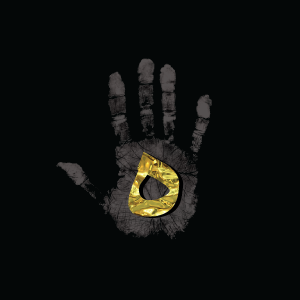Holistic practices and religion have always been intertwined. For centuries, people that have believed in God — regardless of what God it was that they believed in — have also embraced a holistic approach to life, especially when it comes to their health and well-being. Now, it seems like the rest of society has started to understand the benefits of this approach to healthcare. More and more patients are now opting for holistic therapies to be at the center of their treatment, which has led to more and more professional health-providers embarking on careers in holistic healthcare.
If you’re interested in this approach to healthcare and patient treatment, one career path that you could potentially go down is holistic nursing. Before you follow this professional route, however, it’s best that you know the ins and outs of this field. Here’s everything you need to know about being a holistic nurse.
What is holistic nursing?
The nursing industry is full of different practices and treatments, each of which has their own individual advantages and merits. What sets holistic nursing apart from the rest is that it doesn’t rely as heavily on traditional ‘Western’ forms of treatment as the others do. General registered nurses (RNs), for example, will focus solely on things like physiotherapy and medicine in order to tackle the specific symptoms that his or her patients are experiencing, whereas holistic nurses concentrate more on treating their patients as a whole. This entails them taking a treatment approach that tends to not only the healing of the body but the mind and spirit also. They seek to ensure that their patients are emotionally and mentally stable before they discharge them, not just that their physical injuries or ailments are healed up.
How do you become a holistic nurse?
To become a holistic nurse, you have to go down the same educational route as RNs. It means that you must attend an accredited college or university in order to obtain either a Bachelor of Science in Nursing (BSN) or Associate’s Degree in Nursing (ADN) degree. No matter which specific course you take in this instance, you will learn the basics of nursing and caregiving at this stage in your educational journey. You will be taught about how to provide optimum bedside care, you will receive an education in various treatment procedures, and you will learn a little bit about different forms of medicines and how they can be administered.
As soon as you graduate from your undergraduate course of choice, you will then be required to take the National Council Licensure Examination (NCLEX-RN). This exam will put your nursing skills to the test to ensure that you are able to provide care of the utmost quality, so it’s crucial that you take it seriously and give yourself ample time to revise for it. A pass mark in this exam is necessary because, without it, you won’t be able to land yourself your first professional nursing role. Fail this exam, then, and you’ll only delay your career progression.
If you truly want to hit the ground running when you begin your career, you should consider taking a postgraduate course before you start looking for full-time jobs. By enrolling in a masters or even post masters degree that focuses (either solely or intermittently) on the subject of holistic nursing, you will receive an education in self-care, self-responsibility, and self-reflection. To the point, you will learn what it takes to teach your patients about caring for themselves once their time in hospital has come to an end. With this kind of knowledge to fall back on and this kind of educational achievement on your resume, you will find it much easier to land roles in the upper echelon of the holistic nursing pay-grade (which could mean picking up an annual salary of up to $86,500).
There are a plethora of different post-grad nursing courses out there, some of which will teach you about holistic approaches, whereas others won’t. For this reason, it’s important that you don’t commit yourself to a course before first researching the kinds of modules that it offers to its students. The Family Nurse Practitioner programs online offered by Carson-Newman University, for example, fit the bill for people like yourself that are looking to learn about holistic treatments. A highlight of these programs is that they offer specific classes in the provision of holistic primary care. Should you enroll in this program or others of the like, you would be able to learn all about spirituality, emotional wellbeing, and the important roles that they play in modern-day healthcare. What’s more, as these courses are taken 100% online, you would be able to work and earn a full-time wage while you embark on them. Being able to control when, where, and how you study will allow you find a balance between your job and your education, ultimately meaning you’d be much more likely to thrive with regards to both.
Where do holistic nurses work?
Due to holistic health and well-being still being a very niche subject, there isn’t yet a great call for holistic nurses in national health services. It means that, for the most part, practicing holistic nursers can currently be found either working in private establishments or in mother-and-baby units rather than in traditional hospital settings.
The fact that holistic nurses do not necessarily have to rely on various pieces of equipment to perform their work means that they can operate from practically any setting — this has led to some holistic nurses being based solely on in their patients’ homes. A home-based holistic nurse will generally spend their working day helping their patent to cope with being housebound.
What does a holistic nurse do on a day-to-day basis?
No matter where he or she works, a holistic nurse will still perform the following tasks on a day-to-day basis:
- Dietary advice
- Mediation therapy
- Therapeutic massage
- Spirituality
- Acupuncture
- Aromatherapy
- Hypnosis
- Hydrotherapy
- Balneotherapy
- Wellness coaching
As stated previously, holistic nursing doesn’t rely as heavily on ‘Western’ forms of healthcare as other types of nursing do. This is not to say that holistic nurses shun the use of ‘Western’ practices, treatments, and medicines completely, though. If anything, despite them being polar opposites when it comes to healthcare, they blur the line between the Western and Eastern worlds in this instance.
Healthcare providers in North America and Western Europe tend to rely on technological tools and precise statistics when treating their patients, whereas healthcare providers in, say, China will focus more on spiritual and emotional healing. On a day-to-day basis, holistic nurses will blend both of these forms of treatment to ensure that their patients are able to enjoy full-spectrum health.
To provide healthcare that tends to the physical, physiological, emotional, social, and spiritual needs of their patients, a holistic nurse will:
- Recognize their patients as being made up of three all-important aspects: body, mind, and spirit
- Focus on the things that can’t be seen or felt just as much as they focus on those that can
- Practice mindfulness so as to ensure that they are able to keep their patients calm and focused
- Communicate therapeutically in order to identify all of the factors that could be contributing to their patients’ stress levels
Holistic nurses, sometimes also known as complementary health nurses, offer an alternative approach to nursing in order to tend to all of their patients’ needs. They don’t just focus on the body — they focus on the mind and the spirit also.
Without these types of professionals in today’s society, a lot of patients would find themselves in good physical condition, but their mental and emotional condition would leave a lot to be desired. In the case of a patient that hurts or abuses themselves, for example, a registered nurse would heal any physical wounds that they inflict upon themselves, but a holistic nurse would provide them with treatment they need to ensure they don’t go on to harm themselves again in the future.
If you want to provide holistic treatment to patients that are very much in need of it, you should be sure to heed all of the information and advice that is laid out above. Make sure you understand what holistic nursing is, get to grips with the challenges you will face as you train to become a holistic nurse and ensure that you understand the kinds of jobs you will be asked to perform when you are a professional in this niche industry.
Most importantly of all, make sure you’re mentally strong enough to face holistic challenges day in, day out. If they feel comfortable enough to do so (which they should, if you do your job correctly), your patients will no doubt talk to you about a host of shocking things that have caused them physical and emotional pain in the past. You must be prepared to hear these stories without judgment, and you can’t let what you hear impact the healthcare service that you provide. As a holistic nurse, as far as you’re concerned, every patient is equal regardless of what trouble has befallen them in the past.












